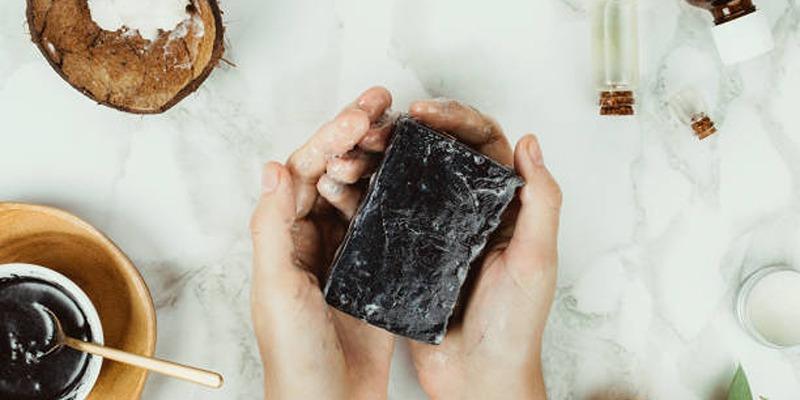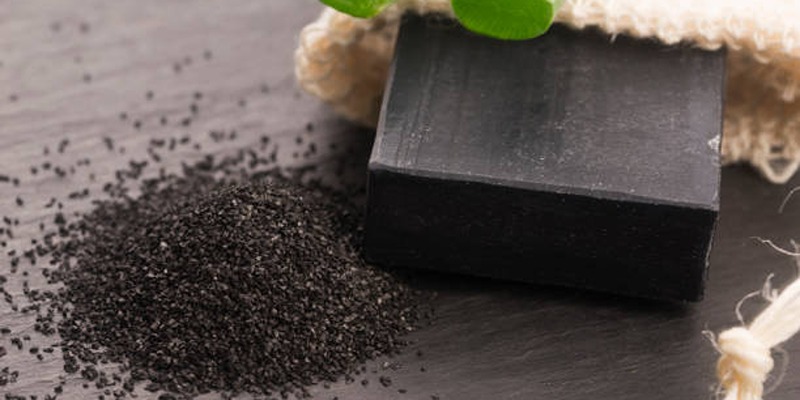Charcoal soap has gained popularity in recent years as a skincare product known for its supposed skin detoxification and purification properties. However, amidst the buzz, one question remains: Is charcoal soap truly an innovative skincare solution, or is it just another passing fad? This article explores the scientific foundation of charcoal soap, its potential advantages, and its efficacy in addressing various skin issues.
Understanding Charcoal Soap:
Charcoal soap, as the name implies, is soap that incorporates activated charcoal as a primary ingredient. Activated charcoal, a finely ground black powder, is derived from natural materials like wood, coconut shells, or coal. Through a heating process, this charcoal is activated, enhancing its porous surface. This activation boosts the charcoal's surface area, allowing it to effectively adsorb (not absorb) impurities and toxins from the skin, leaving it clean and refreshed.
Environmental Considerations:
Considering the skincare benefits of charcoal soap is vital, it's equally important to assess its environmental impact. Typically derived from natural sources like wood or coconut shells, activated charcoal is renewable. The production process can be energy-intensive.
Certain charcoal soap formulations may include ingredients like palm oil derivatives, raising environmental concerns. Consumers are increasingly mindful of sustainable sourcing practices and eco-friendly packaging, emphasizing the need to minimize the environmental footprint of skincare products.
Alternative Uses:
While charcoal soap is primarily marketed for skincare, some enthusiasts claim it has additional uses beyond the bathroom sink. Some people use charcoal soap as a natural deodorant, citing its ability to absorb odor-causing bacteria. Others incorporate charcoal soap into their hair care routines, believing it helps remove buildup and impurities from the scalp.
It's essential to approach these alternative uses with caution and consider their efficacy and safety. The skin on the underarms and scalp may have different needs and sensitivities than facial skin, so what works for one area may not necessarily be suitable for others.
Benefits of Charcoal Soap:

Proponents of charcoal soap claim numerous benefits for the skin, including:
- Deep Cleansing: The porous nature of activated charcoal makes it an effective ingredient for skincare. By binding with dirt, oil, and impurities on the skin's surface, it provides a thorough cleanse that not only helps unclog pores but also aids in preventing acne breakouts, leaving your skin feeling refreshed and revitalized.
- Oil Control: Charcoal soap is a popular skincare product known for its ability to absorb excess oil from the skin, which can be especially advantageous for individuals struggling with oily or acne-prone skin. Its deep-cleansing properties help unclog pores and remove impurities, promoting clearer and healthier looking skin overall.
- Exfoliation: Some charcoal soaps contain particles or ingredients like finely ground apricot seeds or bamboo charcoal that provide gentle exfoliation. This process helps in sloughing away dead skin cells more effectively, revealing smoother, brighter skin underneath for a rejuvenated and refreshed complexion.
- Antimicrobial Properties: Charcoal is renowned for its antimicrobial properties, attributed to its porous structure that enables it to absorb toxins and impurities effectively. This quality not only aids in combating bacteria and fungi on the skin but also contributes to reducing the risk of infections and skin irritations.
- Balancing pH Levels: Charcoal soap is frequently praised for its pH-balancing properties as a cleanser. By aiding in the preservation of the skin's natural acidity levels, it works to prevent the skin from shifting towards extremes of alkalinity or acidity, thus promoting a healthy and balanced skin environment.
Evaluating the Evidence:
A 2019 review published in the Journal of Cosmetic Dermatology examined the use of activated charcoal in skincare products. While the review acknowledged the potential benefits of activated charcoal for adsorbing toxins and impurities, it also highlighted the need for more robust clinical studies to confirm its efficacy and safety.
Some dermatologists caution against overusing charcoal soap, particularly for individuals with dry or sensitive skin. The strong cleansing properties of charcoal soap may strip the skin of its natural oils, leading to dryness, irritation, or exacerbation of existing skin conditions.
Combination with Other Skincare Products:
Charcoal soap is often part of a broader skincare regimen, and its compatibility with other products is an important consideration. Some users may find that charcoal soap complements their existing skincare routine, while others may experience adverse reactions when combining it with certain products, such as chemical exfoliants or prescription medications.
If you're unsure about how to incorporate charcoal soap into your skincare routine, consider seeking advice from a dermatologist or skincare professional. They can provide personalized recommendations based on your skin type, concerns, and existing skincare products.
The Future of Charcoal Skincare:

As consumer interest in natural and alternative skincare continues to grow, charcoal soap and other charcoal-based skincare products are likely to remain popular. However, the skincare industry is constantly evolving, with new ingredients and formulations emerging regularly.
In the future, we may see advancements in charcoal-based skincare technology, such as refined production processes or innovative product formulations. Additionally, ongoing research into the efficacy and safety of charcoal soap may provide further insights into its potential benefits and limitations.
Conclusion:
Charcoal soap has garnered attention in the skincare industry for its purported detoxifying and purifying properties. While it may offer benefits such as deep cleansing and oil control, the scientific evidence supporting its efficacy is limited. As with any skincare product, it's essential to approach charcoal soap with caution and consider its suitability for your individual skin type and concerns. Ultimately, whether charcoal soap is a revolutionary skincare solution or just a passing trend depends on your personal experience and preferences.







